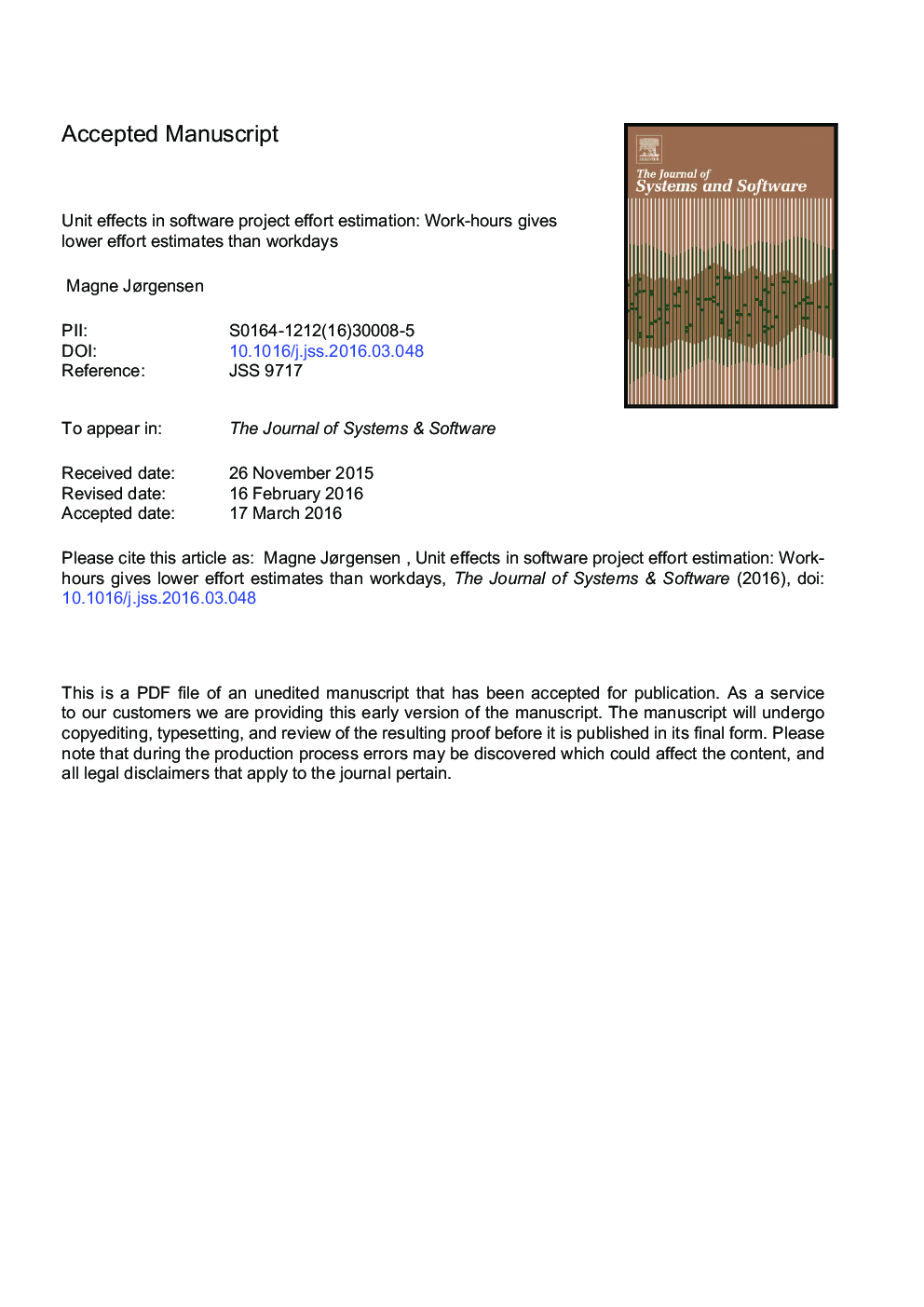| Article ID | Journal | Published Year | Pages | File Type |
|---|---|---|---|---|
| 6885504 | Journal of Systems and Software | 2016 | 32 Pages |
Abstract
Software development effort estimates are typically expert judgment-based and too low to reflect the actual use of effort. Our goal is to understand how the choice of effort unit affects expert judgement-based effort estimates, and to use this knowledge to increase the realism of effort estimates. We conducted two experiments where the software professionals were randomly instructed to estimate the effort of the same projects in work-hours or in workdays. In both experiment, the software professionals estimating in work-hours had much lower estimates (on average 33%-59% lower) than those estimating in workdays. We argue that the unitosity effect-i.e., that we tend to infer information about the quantity from the choice of unit-is the main explanation for the large difference in effort estimates. A practical implication of the unit effect is that, in contexts where there is a tendency toward effort under estimation, the instruction to estimate in higher granularity effort units, such as workdays instead of work-hours, is likely to lead to more realistic effort estimates.
Keywords
Related Topics
Physical Sciences and Engineering
Computer Science
Computer Networks and Communications
Authors
Magne Jørgensen,
